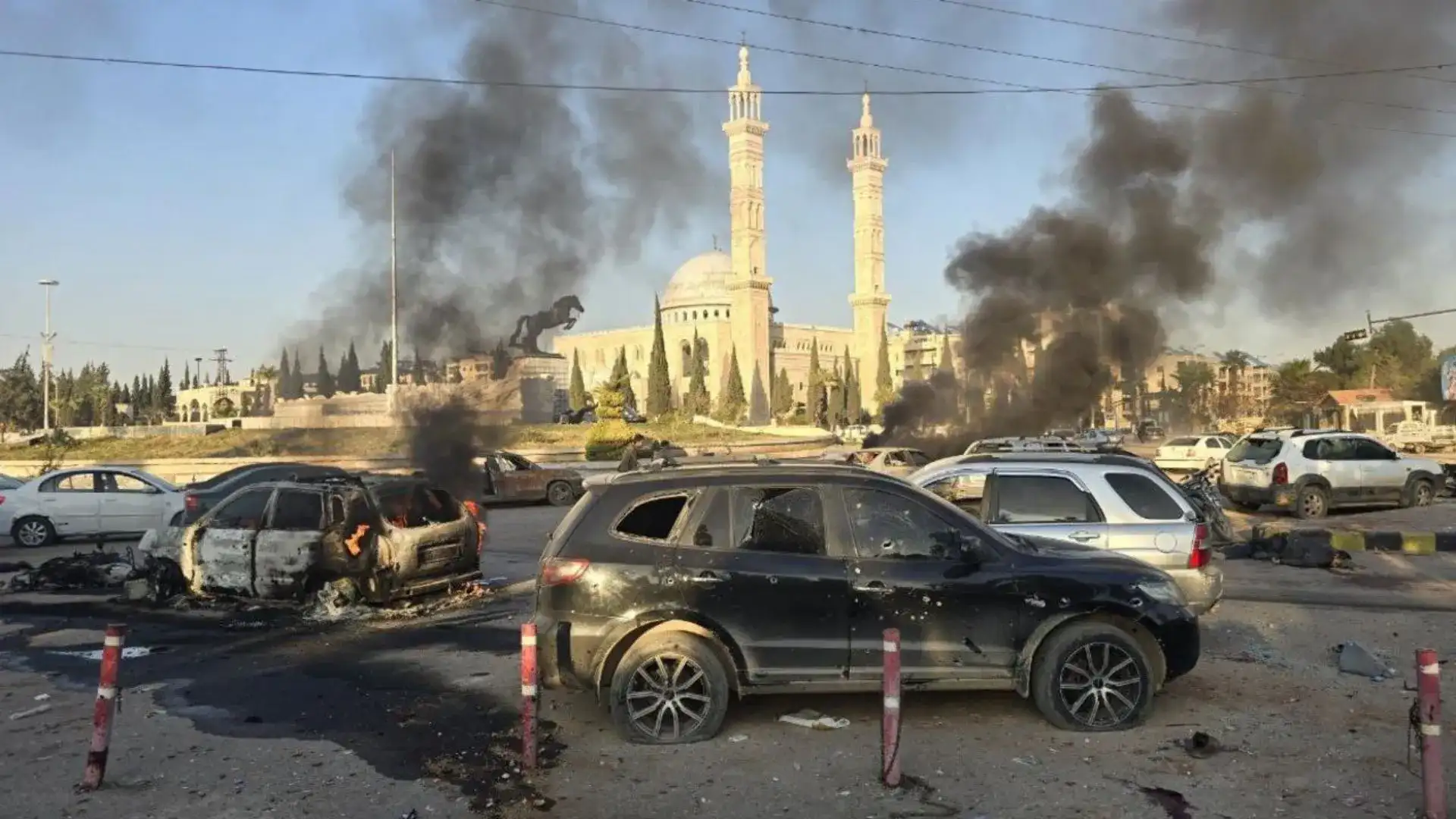Aleppo has witnessed one of the most intense rebel assaults in recent years, driven by the Islamist group Hayat Tahrir al-Sham (HTS). This surprise offensive, which began on Wednesday, has left President Bashar al-Assad’s government struggling to maintain control of the city. The attack marks a significant shift, as front lines have remained largely stagnant since 2020. The Syrian Army has responded with counterstrikes, leveraging support from Russian air forces to strike rebel positions and convoys, according to Russian news agencies.
A Major Challenge for Assad and Russia
This rebel offensive is particularly daunting as it poses the biggest challenge for Assad since the 2016 Russian-backed victory in Aleppo, which solidified government control after years of conflict. The Syrian Army, assisted by Russian air strikes, has targeted rebel gathering points and infrastructure, killing more than 300 insurgents, according to the Russian Center for Reconciliation of the Opposing Parties in Syria, as reported by TASS News Agency.
HTS, previously known as the Nusra Front and designated as a terrorist group by the U.S., Russia, and other nations, has reportedly captured Aleppo airport and the city of Maraat al-Numan in Idlib. These victories signal the expanding reach of the insurgents, presenting an unprecedented challenge for Assad’s regime.
Why This Attack Matters
The resurgence of fighting in Aleppo has heightened tensions in the region, potentially reopening a volatile front in northwest Syria. This comes at a time when geopolitical stakes are already high, with Israel fighting Hamas in Gaza and Hezbollah in Lebanon. The developments have also strained the fragile de-escalation achieved between Russia and Turkey in 2020, which had largely ended hostilities in this part of Syria.
U.S. National Security Council spokesperson Sean Savett attributed the situation to Syria’s failure to engage in a political solution and its reliance on Russia and Iran, which he claimed had contributed to the collapse of Assad’s defenses in northwest Syria. He clarified, “The U.S. had nothing to do with the offensive led by ‘a designated terrorist organization,’” emphasizing a call for de-escalation.
Geopolitical Implications and International Reactions
The situation has sparked reactions from various international actors. Iran’s Foreign Minister Abbas Araqchi accused the U.S. and Israel of orchestrating the rebel attacks as part of a plan to destabilize the region. On the ground, the insurgents claimed their campaign was a response to intensified air strikes by Russian and Syrian forces against civilian targets in Idlib.
The conflict in Aleppo is pivotal for both regional and international dynamics. Russia’s military support for Assad, Iran’s regional influence, and Turkey’s support for certain rebel factions complicate the power play. Meanwhile, the U.S. maintains around 900 troops in northeast Syria, primarily focused on countering ISIS, far from the Aleppo region. Washington has denied any involvement in the current offensive, underscoring the complex web of interests in the region.
ALSO READ: Belgium Becomes First Nation To Grant Maternity Leave And Employment Protection To Sex Workers




